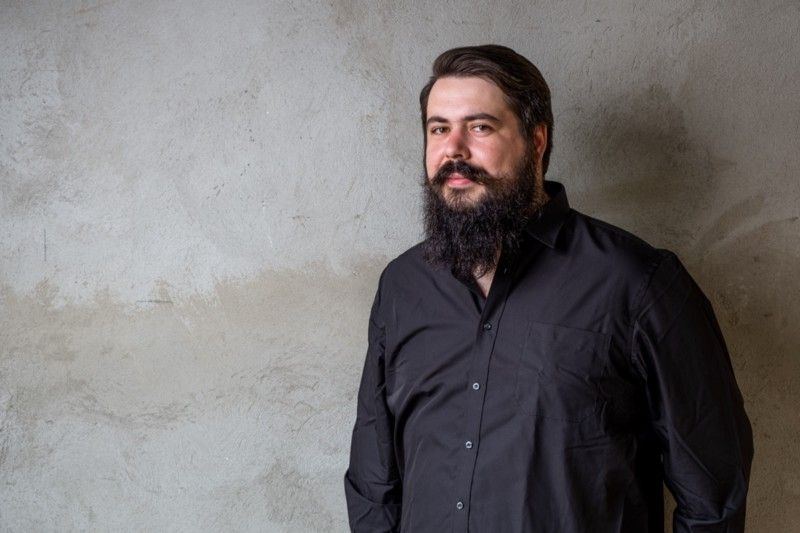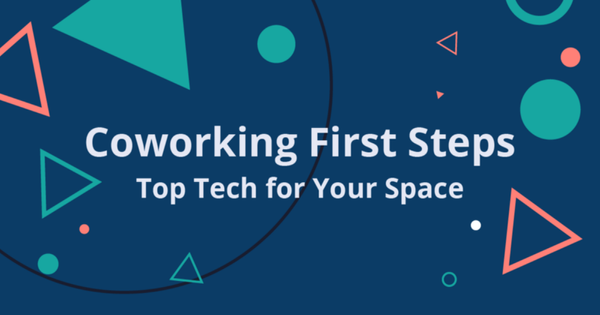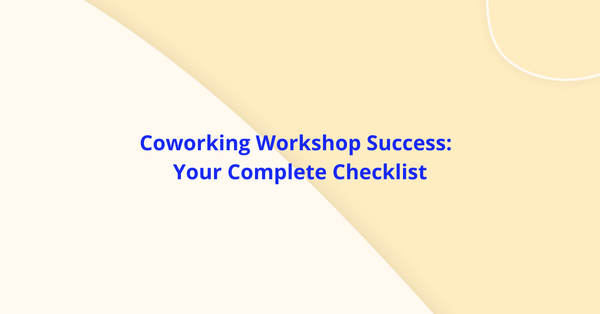St. Oberholz was one of the first coworking spaces worldwide and among the top spots for coworking in Berlin, Germany. We met coworking manager Tobias Kremkau for a talk about successes, learnings and upcoming projects that are breaking new ground in coworking.
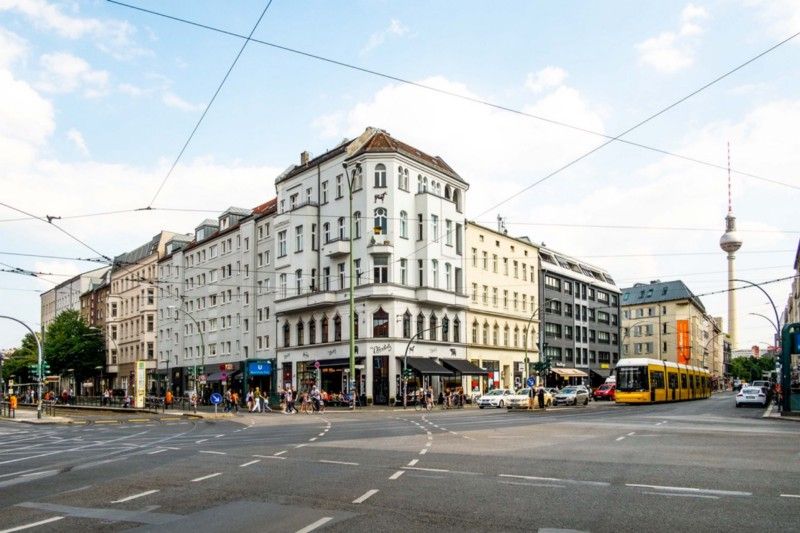
It’s always crowded and busy at St. Oberholz. What makes St. Oberholz special to your coworkers and visitors?
St. Oberholz started in June 2005 as a two floor coffeeshop right in the center of Berlin. From the beginning our philosophy has been that visitors were allowed to work here. St. Oberholz was one of the first places where free wi-fi and power outlets were offered. Last but not least St. Oberholz was and still is characterized by its long shared tables, the center point of the open coworking areas.
Shared tables have always had a special effect: strangers were “forced” to sit together. This effect wasn’t planned but understood retrospectively. In sociology this source of coworking is called “co-presence” and is a form of non-verbal communication. Simply by having people around you at the same place, you come to think these people are similar. This tears down borders automatically, when you meet others at the bar and while ordering a coffee, people will start conversations more easily.
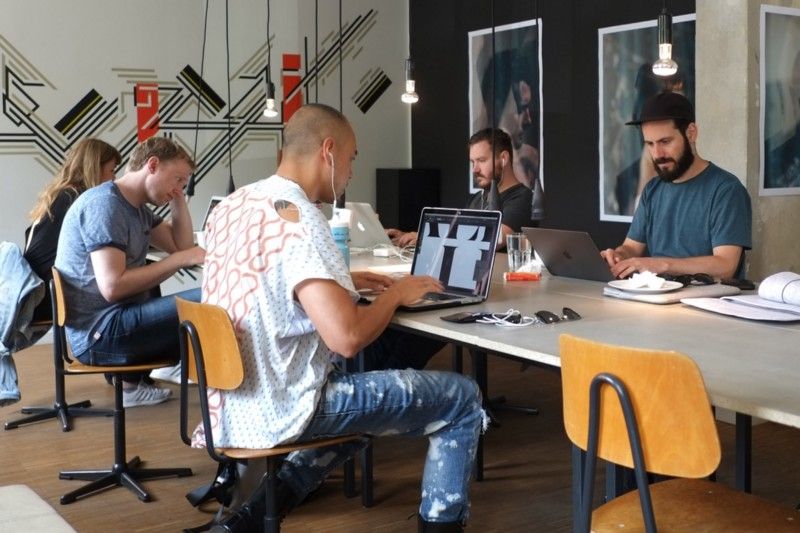
We still keep these tables in our hot desk area today. While this is not the area that generates our base income, in the perception of our coworkers it is one of the most influential places. When your entrance area is appealing, people eventually commit for longer stays by booking company areas — which is actually our main source of income.
Looking back, St. Oberholz wasn’t a real coworking space in the beginning, but a coffee place including coworking. What’s interesting to note is that in the same year similar places suddenly started to appear all over the world. The coworking concept of Brad Neuberg, offered at the Spiral muse, San Francisco for example, or Republikken in Copenhagen. This movement was evolutionary – back then wi-fi wasn’t a standard offering. Today it is one of many benefits for coworkers offering flexibility and mobility. So, in my point of view 2005 marks the beginning of coworking history.
What are the main characteristics of St. Oberholz today?
First of all good coffee still is the connecting formula, the door opener. Selling coffee is about hospitality and creating meeting points — the cornerstone of what we are about. You don’t need to have a coffee shop included, but having a high quality coffee machine to meet the needs of your coworkers.
Second, the mentioned long table in our hot desk area is what makes us special.
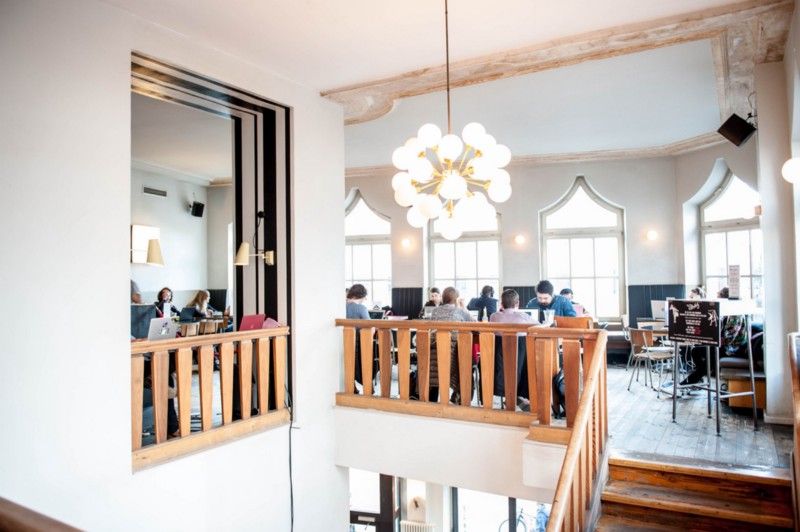
And third, we follow the concept of openness in our daily work as well as architecturally. No matter what we do when operating the space –fixing problems with the printer, welcoming a corporate team or just talking to a member at the coffee machine –we do this with an open mind and hospitality.
How many coworking facilities does St. Oberholz have at the moment?
Once we were offering three coworking spaces / coffee bars in the city center. We have grown organically and remained open to all kinds of ideas from our visitors. However after an identity check by external consultants we decided to focus more on activities and services around work. One of the results was to sell one of our cafés and turn apartments into team offices. Today there are two St. Oberholz Coworking Spaces in Berlin, but next year up to seven more locations will be added. Some will be run under the St. Oberholz name, others we will manage for customers under their own brand.
Any learnings you would like to share?
As space owner you should define and follow your own coworking philosophy. Coworking until this point isn’t an educational expertise — the community is learning by doing. When Ansgar, the founder of St. Oberholz, sat down with me to explain his idea of the space it gave me a framework for how to act in the space. Every time a member approached me with a question I asked myself what might be the right and open answer based on our philosophy. That made it easy for me and as well for the rest of my team. We can’t act in a “wrong” way as long as we can explain why our decisions are aligned with the space’s philosophy. In our process of scaling we were sure to document these and other learnings.
What is driving the St. Oberholz scaling strategy?
First of all we intend to grow. We plan to open new St. Oberholz departments over the city and other places. All these places will have one thing in common — the look and feel of St. Oberholz.
Another strategy we follow is to develop coworking concepts and take care for our clients. They want to have the “Oberholz feeling” in their spaces. We have to be able to educate people on how to run a St. Oberholz somewhere else while adapting it to local communities and interest groups.
Our newest project “Blok O” unites a banking consultancy and a coworking café. Before we’ll open “Blok O” in this coming October, the bank team will attend workshops to learn about the idea of coworking. We’ll prepare them for use cases typical for this environment. The employees will learn how to work in a open room situation and how to handle coworking-related member requests. “Blok O” will be the first of its kind. Banks and coworking have met before, but mostly existed side by side. Here we really integrate a bank into a coworking space. The bank as a physical place doesn’t exist anymore. You’ll only notice it by the cash machines and for security reasons by its own wifi.
The collaboration is only possible because Sparda Bank has a value system compatible with ours. As long as a company is open to changes in their company culture we are happy to work with them. Otherwise it would be not more than a marketing activity — and for us that’s a deal-breaker.
It is important to us that projects like “Blok O” enable positive social change in people’s work environment. That is why evaluate beforehand if we can work with a corporate company — is has to happen without sacrificing our values.
We would like to grow the coworking community and to open it to new areas like banking, hotels, shopping malls, residential spaces, and more.
We don’t know if coworking will exist in the future, but for sure we’ve already created some better working landscapes.
Is internationalization also part of your scaling strategy?
Yes and no. Right now, we have international partnerships realizing local projects. But more and more we get requests to go international. Next projects in Amsterdam, St. Petersburg, Vienna and Zurich are already in progress.
How is St. Oberholz connected to national and global coworking associations? Is that relevant to your scaling process?
Generally we observe strong networking between coworking associations and coworking experts, and we welcome it very much. For the St. Oberholz scaling process it hasn’t had much of an impact yet. Starting new projects is more of a B2B process, local institutions are so far rarely involved.
As a member of the GCF (German Coworking Federation) I would like to add that the federation is more focussed on presenting the coworking culture itself to a broader audience. But we also support coworking space managers in their founding process and help coworking spaces that aren’t connected yet to other spaces in their city or area.
As an executive board member of the GCF you share your learnings in workshops regularly. Any special advice you have for coworking starters?
My part in these workshops is titled “Errors and Misunderstandings”. The main lesson: you never know what is going to happen! To follow this philosophy is very important to me, especially as the coworking scene is facing two major problems:
Often the understanding of the need for visibility is missing, e.g. Websites, social media, SEO etc. Potential coworkers are googling coworking spaces in their neighborhoods by entering name of the city + coworking. What seems obvious a lot of space operators simply don’t know. So coworkers often end up without proper search results and miss out on great spaces. For example adding photos to google increases views very quickly. But also, in rural coworking communities handing out a flyer might be the best way to reach out. In summary, any kind of visibility is a must.
The Fraunhofer Institut counts 450 spaces in Germany in one of their latest statistics. When I started my blog series “#100CoworkingSpacesDE” I barely could find any results in my research first. So my recommended search options would be #coworking #cityname #remotework #wlan.
What is the second problem you were thinking of before?
The missing understanding of the role of the founder. People start coworking spaces out of love for their communities, value-oriented, which is a great thing. But keep in mind you are first of all founder of a company and coworking is the matter at hand.
For example Nicole and Bianca from Krämerloft started a discussion recently at #cowork2018 and stated: coworking is first and foremost a business. Coworking businesses need to be profitable. Otherwise you are having a great idea but no chance to keep it alive. Only by earning money will I be independent in my decision making. This kind of founding mentality is very often missing.
What are the main tips coworking founders should keep in mind?
Personally, I am not the founder type myself. But luckily I work with Ansgar Oberholz and get to learn from his expertise as an entrepreneur, coworking pioneer and consultant. Founding is a long, hard process of learning. To give you an idea: the second St. Oberholz café was started ten years after the first one opened.
Also, copying ideas is not necessarily a bad thing. Observe what works out well for others and decide if it is meeting your community’s needs as well.
Furthermore, as we don’t have proven literature and mainly depend on social media or blogs talking about coworking, I think visiting other coworking spaces is one of the most important and effective ways of learning and understanding, finding or developing own ideas and concepts.
Last but not least you should be willing to approach others openly, to join meetups and conferences and also travel often.
The Cobot Expert Interviews are a series of interviews with people who stand out in the national and international coworking movement. We love to share their unique perspectives and experiences. Who do you want to see here next? If you have any suggestions or would like to share your own insights on coworking please contact press@cobot.me.
